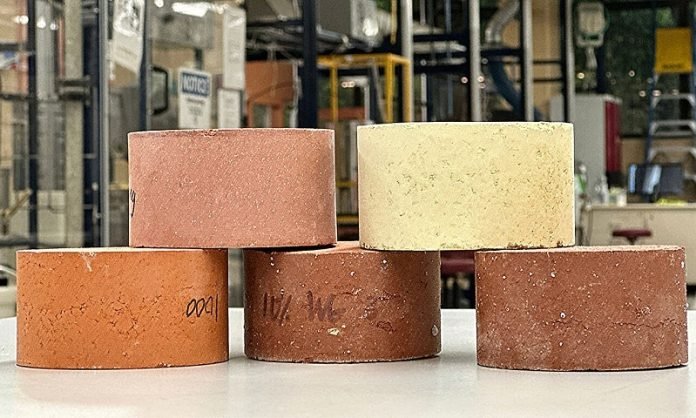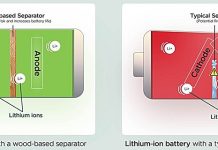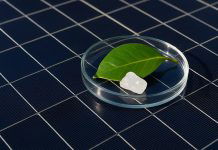
Engineers at RMIT University in Australia have teamed up with Visy, the country’s largest recycling company, to develop a new type of brick made largely from waste materials that usually end up in landfills.
These innovative bricks incorporate at least 15% waste glass and 20% combusted solid waste ash, offering a sustainable alternative to traditional clay bricks.
Published in the journal Construction and Building Materials, the research reveals that these energy-smart bricks not only help reduce waste but also enhance the insulation properties of buildings.
By improving thermal performance, the use of these bricks in a single-story building could lead to a reduction in household energy bills by up to 5%.
The substitution of clay with recycled glass and ash also allows the bricks to be fired at temperatures up to 20% lower than those required for conventional bricks.
This significant decrease in firing temperature could lead to reduced manufacturing costs and lower carbon emissions associated with production.
Associate Professor Dilan Robert from RMIT’s School of Engineering highlighted the global impact of traditional brick production, which consumes about 1.4 trillion bricks annually and contributes to substantial emissions of carbon dioxide and other pollutants.
By shifting to the production of these new bricks, the industry can mitigate environmental damage and conserve natural resources like clay.
The innovative bricks have passed rigorous testing standards, meeting the structural, durability, and environmental sustainability criteria set by Standards Australia (AS 3700).
This ensures that the bricks are not only eco-friendly but also structurally sound and durable for construction use.
Dr. Biplob Pramanik, an environmental engineer with the RMIT team, reassured that the bricks are safe for building purposes, adhering to state environmental regulations.
Furthermore, the new formulation allows for the production of lighter bricks in various colors, ranging from white to dark red, providing aesthetic options for builders and architects.
The project represents a significant step forward in the circular economy, which aims to eliminate waste and continually use resources.
In Victoria, where Visy already recycles large glass pieces into new bottles and jars, the innovation addresses the challenge of recycling glass fines—tiny pieces smaller than 3mm that are difficult to repurpose.
Paul Andrich, Innovation Project Manager at Visy, expressed enthusiasm about the partnership, emphasizing the dual benefits of diverting waste from landfills and enhancing building insulation.
Looking ahead, the research team at RMIT is keen to expand the application of their findings. They plan to collaborate with brick manufacturers in Melbourne to scale up production and explore other construction products that can benefit from integrating recycled waste materials.
This collaborative effort marks a progressive move towards more sustainable construction practices and a reduced environmental footprint.
Source: RMIT University.



